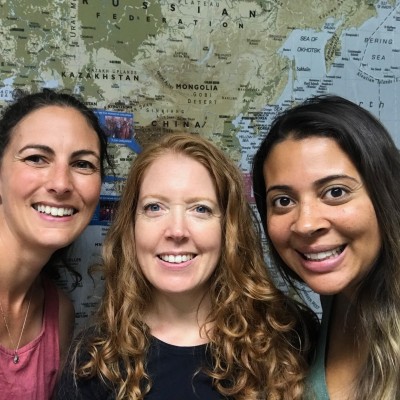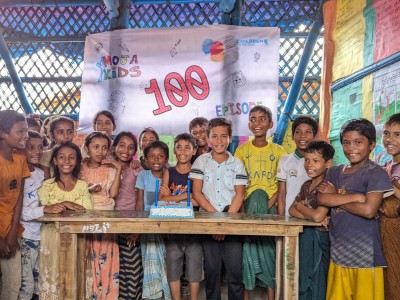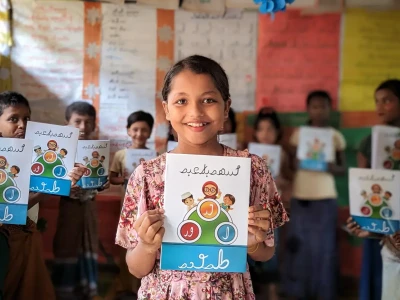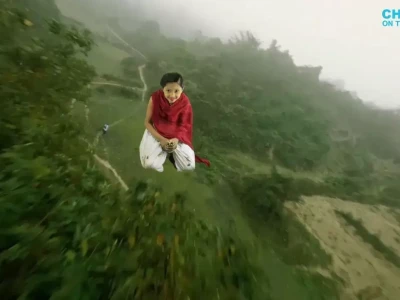Where language creates a barrier to education, our video lessons bring learning to life and ensure that Rohingya refugee children are able to access meaningful education in a language they can understand.
The iF Design Social Impact Prize is awarded twice a year and supports projects that contribute to improving society with hundreds of entries received from companies, design studios, NGOs, foundations, social enterprises and public organisations.
In 2022, Children on the Edge received the prize for our Cluster Learning programme in Uganda and this year we are thrilled to have been awarded the accolade for a second time for our work in Bangladesh.
The Jury said:
"This program is addressing a significant need for Rohingya children to have access to learning content in their own language, preserving their cultural identity. Additionally, the opportunity for children to participate in creating content gives them dignity and much-needed hope".
Ben Wilkes, our COO said:
"All of us at Children on the Edge are absolutely delighted to have been awarded the IF design social impact prize for our Digital Education Programme in Bangladesh this year. We are so grateful to the judging panel at iF Design for choosing to award our work ensuring thousands of Rohingya refugees can access meaningful education, in a language they actually understand. Recognition like this is invaluable to a small charity like us, who are constantly looking for innovative ways to enable marginalised children living in refugee camps, slums, and warzones to thrive".
Over a million Rohingya refugees from Myanmar live in Bangladesh, trapped on the border unable to return home. They live in dire conditions in Kutupalong, the world's largest refugee camp.
Children here are required by the government to learn using the Myanmar curriculum. which is in Burmese - a language which few Rohingya people speak or read. Children and teachers cannot understand the approved curriculum, so an entire generation of children are at risk of growing up without learning to read or write and lacking the basic skills needed to lead a healthy, fulfilling life.
To address this, in 2019, we launched a pilot project to create visual lessons that were projected in the classrooms of our learning centres in Kutupalong. Our digital team recorded lessons, using the Burmese textbooks, dubbing them in the Rohingya language so that the children and teachers could understand what was being said.
The children were speechless. It was the first time any of them had directly received a lesson in their own language and they could finally understand what was being taught. Child after child asked for more digital lessons and they quickly became their favourite thing about school.
By using simple technology - USB sticks and handheld projectors - we open up a world of experience and learning for children confined to the world's largest camp.
Children also produce their own weekly video newsletters through their own online platform named 'Moja Kids'. The children delight in both creating and watching the Moja Kids productions.





